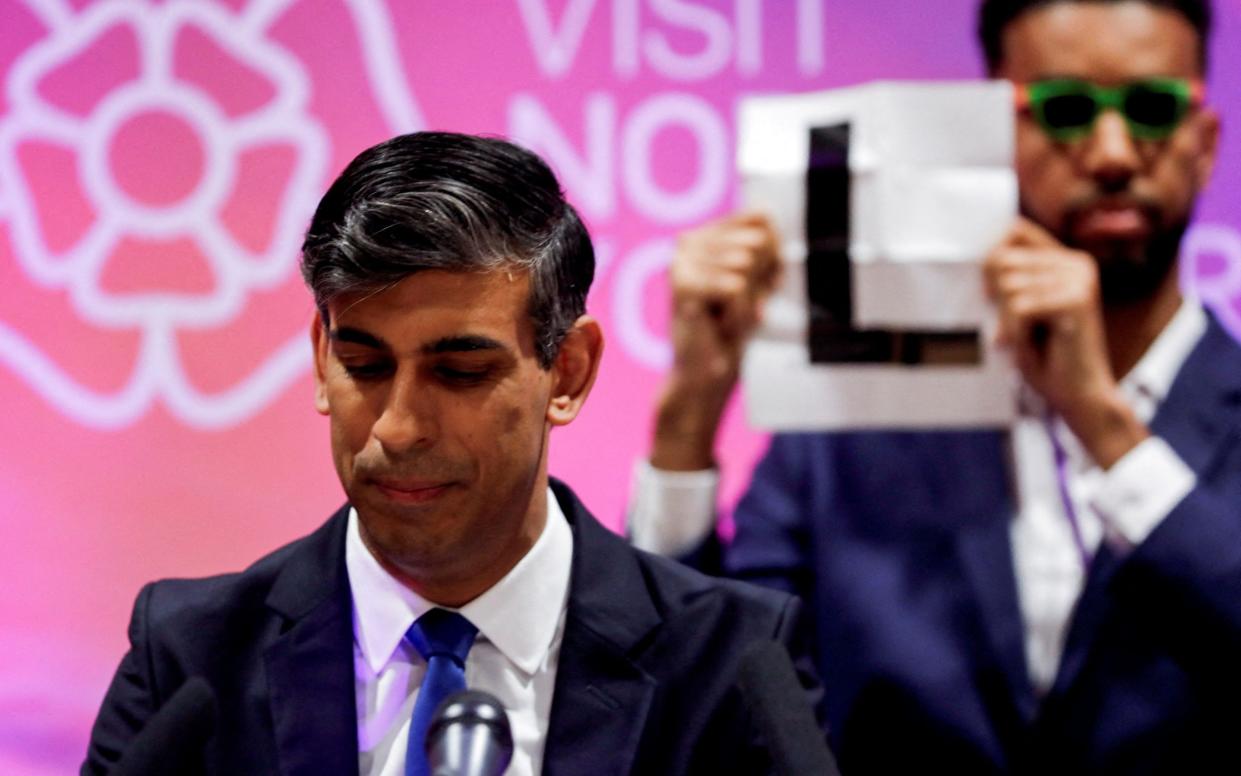How the Tory leadership race will now unfold

The BBC’s exit poll forecast that the Conservatives will win 131 seats – higher than the best of the recent polls for them, though such a result would still be the worst in their long history. But all these calculations are being thrown into chaos.
The fracturing of the two party system – plus voter rage, disillusion and contempt for the Tories – leaves the future hard to read. When Labour won its last great landslide, back in 1997, the Conservatives were threatened on only two fronts (at least in England).
Now, they are being rolled up in three. Reform are replacing them as the opposition to Labour in parts of the north. The Liberal Democrats are taking seats from them in much of the south. And the implosion of their vote leaves Labour as the winners elsewhere.
Might this terrible result prove terminal? Much may turn on whether they come in closer to 50 seats than 150. But whatever happens, the Tories remain the second party of local government in England – holding, for example, every two-tier county council bar one.
So while they may simply implode, like the Liberals in the first half of the last century, such an outcome is unlikely. But, as after that 1997 landslide, recovery may take a decade or more, for all the fissiparous, fragile nature of modern politics. And the fact that Labour’s majority flatters to deceive.
Penny Mordaunt, Grant Shapps, Gillian Keegan, Alex Chalk: at a stroke, the Conservatives have lost much of their leadership. Rishi Sunak will surely now quit. There will be a leadership contest to replace him. Under what rules and timetable?
The Party’s constitution gives its members the final say. But Tory MPs have the first one, and the 1922 Committee’s executive, which has charge of it, must first be elected. The main contenders for the Conservative leadership include Kemi Badenoch, Priti Patel and Tom Tugendhat.
Some of the potential candidates may believe that a long contest would suit them. Others might prefer a short one. They will surely want to see their supporters elected to the executive in order to help shape the rules of the election.
The outcome may be messy and the outcome is uncertain. Some Conservative MPs want an interim leader. Others yearn to relieve the members of their vote. Meanwhile, activists will be feeling, not unreasonably, that their leaders have led them badly.
The five stages of grief are denial, anger, bargaining, depression – and, finally, acceptance. The Tories are about to experience them all, and the anger stage will take a long time. During which they will be haunted by the ghosts of the recent past.
Should the party do a deal with Nigel Farage, and seek somehow to merge with Reform? Should Boris Johnson be put back on the candidates’ list, and be welcomed back as a prodigal son? And what do they do with their last two leaders – Liz Truss and Sunak himself?
Should they move left? Should they shift right? Before they think about doing either, they should grasp that if Conservatives aren’t competent, they don’t win elections. A lesson they last learned after the economic debacle and tax rises of the mid-1990s.
It took a decade or so and a new generation of leaders before voters were prepared to give the Tories a hearing again. It’s difficult to see why it should be different this time. Truss, Johnson, Sunak himself – let alone Farage. None of them look like the revival that the Conservatives need.

 Yahoo News
Yahoo News 
